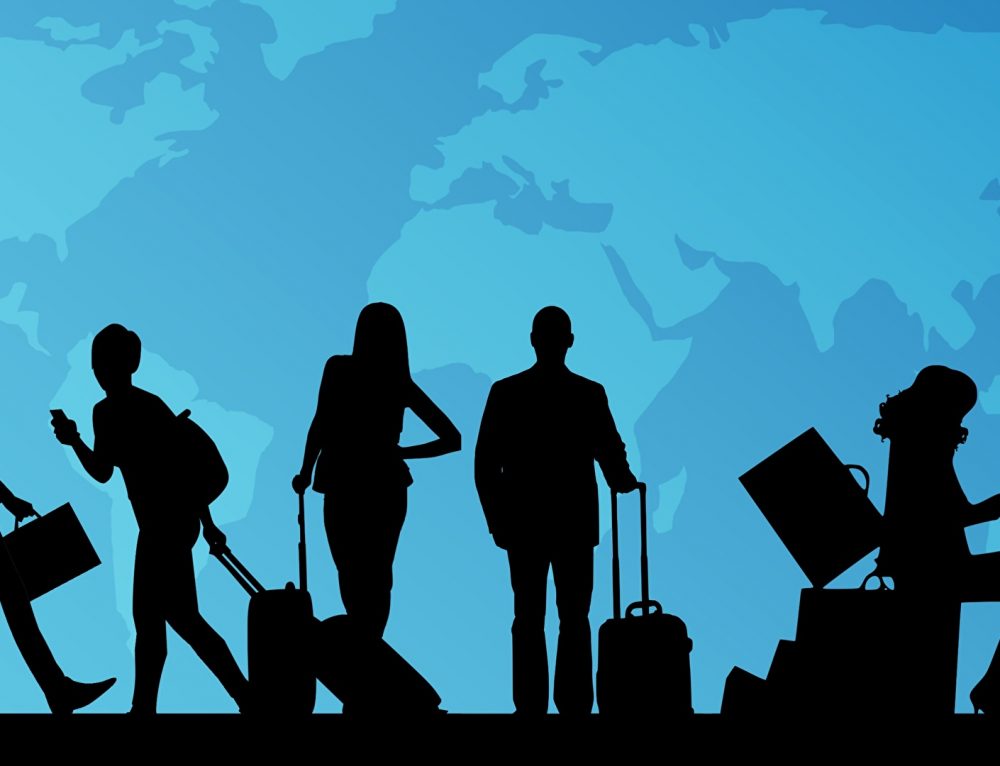Travel, especially international travel, will look very different.
By Avi Meir* — This article first appeared on travelperk.com
The Coronavirus pandemic has changed all of our worlds, and not just in the short term.
Outside of healthcare—where heroes dressed in gowns are battling on the front lines—few industries have been hit like travel.
In my own company, bookings are down by over 95%, we’ve created a COVID-19 resource center and our support staff are working very hard to help travelers and admins.
When things do start to return to “normal,” travel, especially international travel, will look very different. Here are the top changes I see coming.
The queue at immigration will be longer than ever before
We’re already seeing with China, Singapore, and South Korea, countries that feel like they are on top of their outbreaks, that the biggest worry now is new infections coming from outside. Korea is ordering all persons entering from the U.S. and Europe to isolate for two weeks, even if they test negative for COVID-19. Those without a permanent residence are being sent directly to an isolation ward. Manufacturers of heat cameras are seeing a spike in demand. Even when lockdowns in Europe are over and we start to travel again, countries will test at the border. If you thought the line at JFK immigration control was torturous before, now consider what it’ll be like as you line up, take a swab test, and wait for the results.
You’ll need more than a passport
Some countries will not even take the chance of testing at the border. Especially if you’re coming from an outbreak hotspot. Entrance will be refused unless you have a certificate of immunity due to the fact that you’ve recovered from an infection or because you’ve been vaccinated (once there are vaccines available.)
Certainly in the short term, travel will become more defined by purpose. Any business travel will need to be strictly validated as an economic activity, with companies tightening the numbers of employees who travel for them. Countries will likely only open their borders where there is merit and it’s safe to let travelers through. This may mean temporary visas and more documentation that you’ll need to take with you when traveling.
Travel will have different (expensive) seasons
A very influential paper from Imperial College London speculates that governments will need to turn lockdown measures on and off in order to keep demands on healthcare systems at a manageable level. This means there will be windows of opportunity to travel that last only weeks or even days. Even with airlines desperate to get airborne again, seats will be limited and we could see dramatic increases in pricing during those windows.
Recovery will be uneven
Strictness and timing of lockdown measures, robustness of healthcare systems, the weather, luck, and other factors are all at work. Meaning some countries and regions will recover first. For example, Italy is days ahead of other European countries when it comes to the extent of the outbreak. Might this mean it’s among the first to reopen its doors, like China? Or will the depth of the nightmare Italy is dealing with mean they are more reluctant to let foreigners in?
You’ll pack differently
Seen the TikTok video of a man taking out a bag of wet wipes and thoroughly wiping down his seat and table before sitting down for takeoff? Well, it could be something you start to see in the flesh. We may well see the relaxing of liquid carry-on restrictions as travelers want to take more than 100ml, especially on long-haul flights. Along with hand sanitizer travel packs, it’s a pretty easy prediction to make that a lot more people will travel with masks. In the same way that companies like Away have made luxury, fashionable travel baggage, we will most likely see “desirable” travel masks worn by Instagram influencers.
You’ll tick that little box every time
We’re all very used to airplane bookings coming with tens of add-ons once we’ve chosen our flight. Let’s be honest, most of us skip past speedy boarding, extra baggage, car rental, and even seat selection. One box that we won’t be skipping past as much is the one asking us if we want to insure the flight. Be careful though, often this “insurance” doesn’t cover you for many things, including the outbreak of a pandemic. Either airline providers or insurance companies are going to have to change to accommodate our new reality.
At TravelPerk, we saw the need for flexibility even before the current crisis. It’s why we created something different and better than insurance called FlexiPerk, allowing you to cancel a trip for any reason, up to a couple hours before takeoff. We’ve seen massive demand for FlexiPerk since we launched it, and this demand has increased dramatically since the beginning of the corona outbreak.
Society won’t like you when you’re sick
Even those who have recovered from COVID-19 and have built up immunity won’t want to travel with a cold. The current situation and the conviction with which the world is adopting social distancing will make it socially unacceptable to travel with a cold or any symptoms. I predict that social stigma will put a lot of people off, resulting in the potential for more no-shows on travel days.
You’ll take the train before the plane
Domestic travel will recover first and for most countries that means taking a train. Trains are less crowded, have windows that open, and also are much more environmentally friendly. Once the lockdowns we see in Europe now are lifted, I predict people will rush to take a train, just because they can.
Air quality will be an advertised feature
Any idea what grade air filter Lufthansa uses on their flights? How about British Airways? Do Boeing planes have fewer microbes in the air? Well, you may not know now, but once we’re flying again, airlines will start boasting about their filtration systems. Some have already started emailing customers about their current systems in a bid to stop people canceling. By the end of the year, it’ll be a question many people will be asking—how safe is the air onboard?












